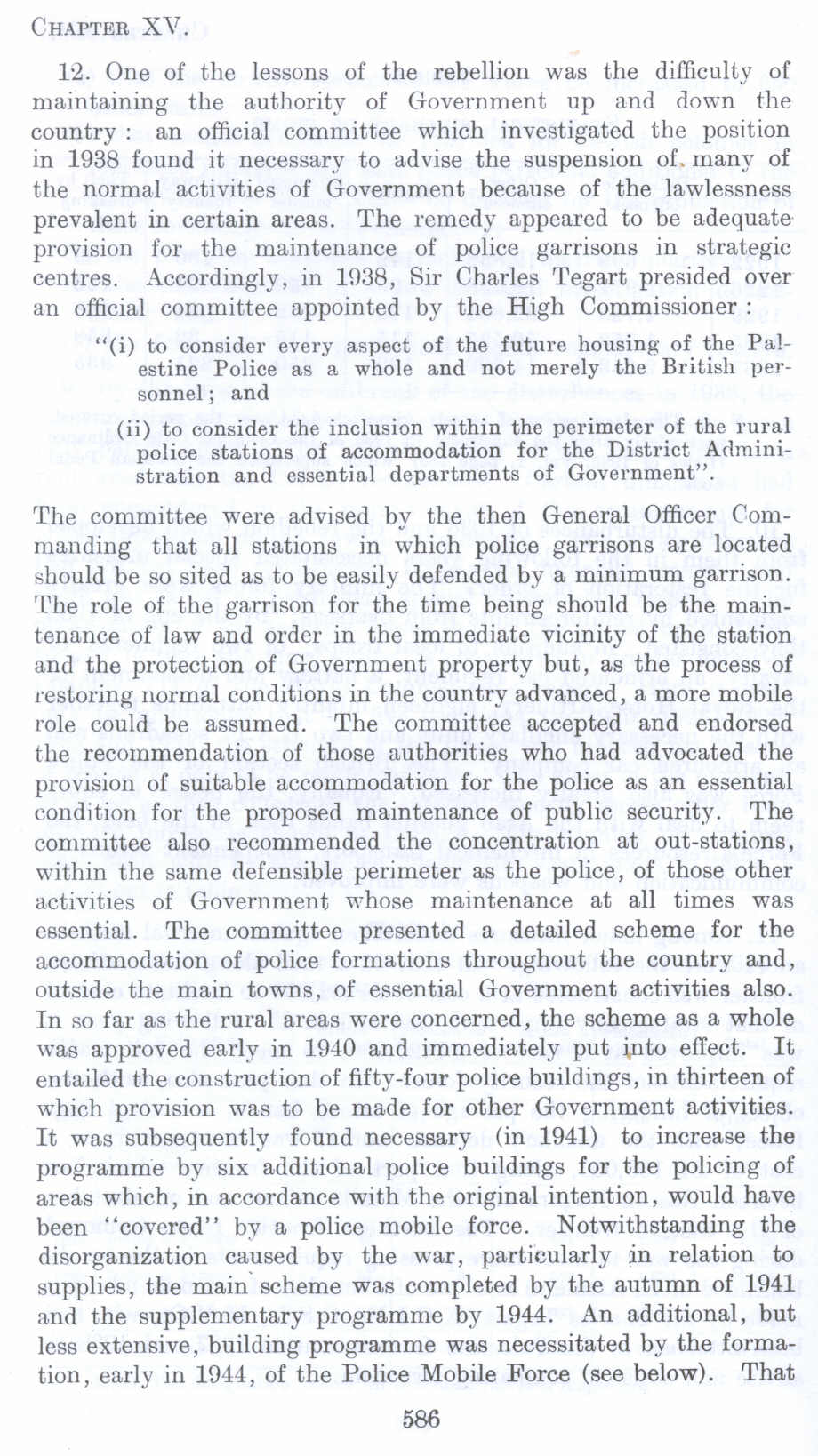| Prev | Next |  |
| Prev | Next |
| PalestineRemembered | About Us | Oral History | العربية | |
| Pictures | Zionist FAQs | Haavara | Maps | |
| Search |
| Camps |
| Districts |
| Acre |
| Baysan |
| Beersheba |
| Bethlehem |
| Gaza |
| Haifa |
| Hebron |
| Jaffa |
| Jericho |
| Jerusalem |
| Jinin |
| Nablus |
| Nazareth |
| Ramallah |
| al-Ramla |
| Safad |
| Tiberias |
| Tulkarm |
| Donate |
| Contact |
| Profile |
| Videos |
British Mandate: A Survey of Palestine: Volume II - Page 586 |
Disclaimer
The above documents, article, interviews, movies, podcasts, or stories reflects solely the research and opinions of its authors. PalestineRemembered.com makes its best effort to validate its contents.


Post Your Comment
*It should be NOTED that your email address won't be shared, and all communications between members will be routed via the website's mail server.
12. One of the lessons of the rebellion was the difficulty of maintaining the authority of Government up and down the country : an official committee which investigated the position in 1938 found it necessary to ad vise the suspension of. many of the normal activities of Government because of the lawlessness prevalent in certain areas. The remedy appeared to be adequate provision for the maintenance of police garrisons in strategic centres. Accordingly, in 1038, Sir Charles Tegart presided over an official committee appointed by the High Commissioner :
11(i) to consider every aspect of the future housing of the Palestine Police as a whole and not merely the British personnel; and
(ii) to consider the inclusion within the perimeter of the rural police stations of accommodation for the District Administration and essential departments of Government".
The committee were advised by the then General Officer Commanding that all stations in which police garrisons are located should be so sited as to be easily defended by a minimum garrison. The role of the garrison for the time being should be the maintenance of law and order in the immediate vicinity of the station and the protection of Government property but, as the process of restoring normal conditions in the country advanced, a more mobile role could be assumed. The committee accepted and endorsed the recommendation of those authorities who had advocated the provision of suitable accommodation for the police as an essential condition for the proposed maintenance of public security. The committee also recommended the concentration at out-stations, within the same defensible perimeter as the police, of those other activities of Government whose maintenance at all times was essential. The committee presented a detailed scheme for the accommodation of police formations throughont the country and, outside the main towns, of essential Government activities also. In so far as the rural areas were concerned, the scheme as a whole was approved early in 1940 and immediately put into effect. It entailed the construction of fifty-four police buildings, in thirteen of which provision was to be made for other Government activities. It was subsequently found necessary (in 1941) to increase the programme by six additional police buildings for the policing of areas which, in accordance with the original intention, would have been "covered" by a police mobile force. Notwithstanding the disorganization caused by the war, particularly in relation to supplies, The main' scheme was completed by the autumn of 1941 and the supplementary programme by 1944. An additional, but less extensive, building progamme was necessitated by the formation, early in 1944, of the Police Mobile Force (see below). That
586